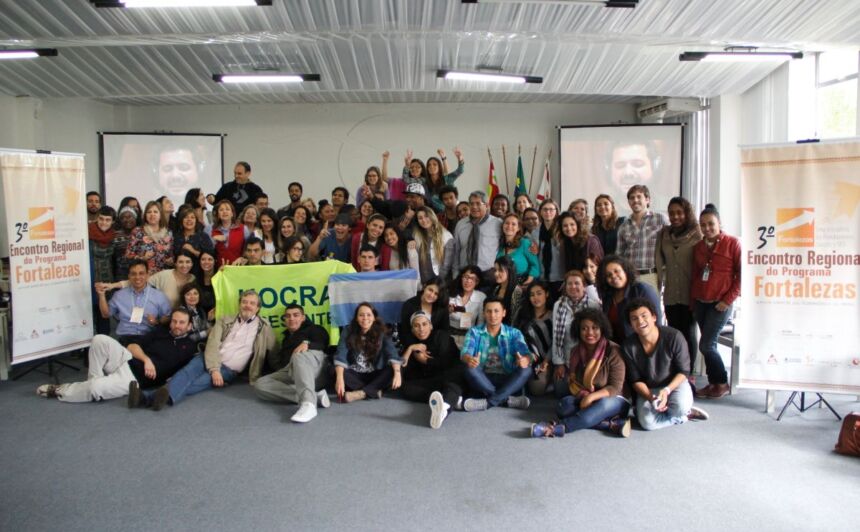Share Content
Article Link Copied
Fortalezas: Exchange and Mutual Learning

Since the start in May 2013, a total of more than 2,000 adolescents have signed up for the training program and more than 1,200 have successfully graduated. Whereas at the beginning of the program only 23% of these adolescents had a job, almost 56% had one after going through the program—an increase by more than factor two! At the same time, the share of youth benefitting from social security within their work place has increased from 10% to 45%.

It was the second time that next to representatives of the organisations, youth from the three countries, Argentina, Brazil and Colombia participated in the meeting.
The Fortalezas program focuses on institutional strengthening of organisations (component 1) and a concrete youth training and labor market inclusion project (component 2). The project is thought to be a sort of indicator for the impact of organizational changes on projects. A third component includes exchange and mutual learning. Besides bilateral exchange and online media, such as the Fortalezas webpage, the yearly Fortalezas meeting is a highlight. This year it took place in Brazil.
Even though all six participating organisations have the same objective, namely training youth in technical and life skills as well as their integration into the formal labor market, their organisational set-up and approach to this task are quite different: Two organisations are part of large professional associations or unions which have been involved in providing training for many years, however, had not adapted the training to the specific needs of youth. One organisations trains self-dependent youth (micro) entrepreneurs, whereas three focus on training for subsequent dependent employment.

Fabio Segura, Head of International Intervention at the Jacobs Foundation, emphasizes the importance of exchange and mutual learning within the program of Fortalezas.
Besides meeting old and making new friends, the three days were used intensively to exchange experience, success stories as well as challenges that the six organizations faced during the first two years of the program.
The discussion touched on the collaboration with the private sector: Whereas offering internships is valued, participants mentioned that it does not go far enough. Companies need to change their mind-set and recognize and promote the potential and value-added that young employees can bring to a company instead of considering internships as charity or corporate social responsibility actions.
Furthermore, participants emphasized the importance of youth collaborating within the social organizations as trainer and coach for peers and not only as participants in trainings. The success of the Youth Advisory Committee that youth from the Centro Cultural Escrava Anastacia founded in the framework of the Fortalezas program was mentioned as a positive example. As a result, some of the organizations started thinking about introducing a similar Youth Advisory Committee.

The youth worked in separate working groups on the challenges they are confronted with when looking for work or working and developed solutions with the help of role plays.
Against the background of slow economic development and the related reductions in public funds for the social sector, the topic of financial sustainability and opportunities and experiences in diversifying fund raising was discussed. Specifically, the feasibility of selling services the social organizations offer was controversially discussed.
Finally, the organizations defined during the meeting the challenges they will be focussing on during the third and last project year as well as the topics they will continue to work on beyond the meeting bilaterally with one of the other Fortalezas member organisations.